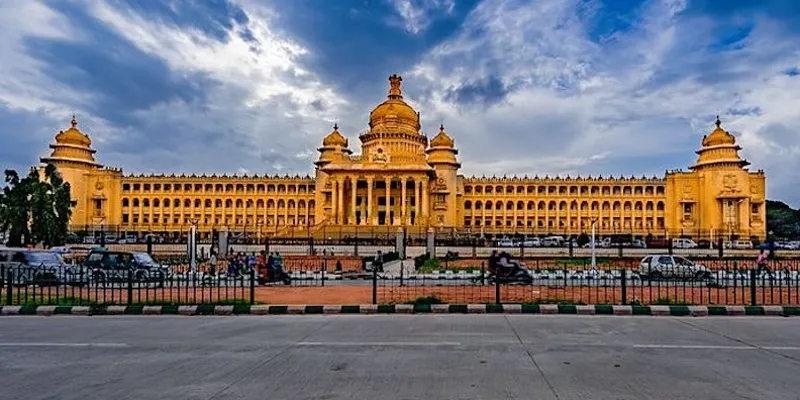As Karnataka enters full lockdown, here’s what is allowed and what is not
The COVID-19 positivity rate in Bengaluru has reached 38.86 percent, and a full state-wide lockdown has been announced till May 24. Here’s what you should know.
Karnataka has entered a full state-wide lockdown from today till May 24, 2021. Till date, the state has reported over 19.3 lakh cases and 18,776 related fatalities. The recent lockdown restrictions have been introduced to break the chain of COVID-19 transmissions in the state.
Chief Minister BS Yediyurappa announced the revised lockdown measures on Friday, clarifying that people can venture out only to purchase essential items during the two-week lockdown period.
The lockdown restricts the movement of private and public vehicles across the state. Scheduled flights and trains will be allowed with tickets serving as a pass for movement of people by personal vehicles, taxis, or cab aggregators.

Image Source: Shutterstock
What is allowed?
- Only offices of the state government and their autonomous bodies, corporations such as health, police, medical education, home guards, prisons, civil defence, disaster management, and revenue will be allowed to function provided their premises are outside containment zones.
- Offices of the Government of India and its autonomous bodies such as defence, central armed police forces, telecommunication, forestry, public utilities will remain operational outside containment zones.
- All hospitals, dispensaries, nursing homes, clinics, pharmacies, chemists, Jan Aushadhi Kendras, blood banks, research and pharmaceutical labs, as well as manufacturing of medical drugs and equipment will be operational. Construction work related to medical infrastructure is also allowed.
- Inter and intra-state movement of paramedics, medical staff, nurses, scientists, and lab technicians are allowed.
- Shops selling groceries, vegetables, and other essential items will function from 6 am to 10 am only. Pushcarts for fruits and vegetables can ply from 6 am to 6 pm. Milk booths can operate for the regular 12-hour period every day. Delivery via ecommerce companies is allowed, albeit only essential goods.
- Standalone alcohol
- Power generation and transmission, print and electronic media, banks, ATM, food processing, internet, broadcasting, and cable services will be allowed to remain operational.
- Scheduled weddings adhering to COVID-19 appropriate behaviour are allowed with a maximum of 50 people.
- Cremations and funerals are allowed with a maximum of five people adhering to COVID-19 appropriate behaviour.
What is not allowed?
- Metro rail and all other public transport, including BMTC buses and KSRTC buses, will not be operational. Taxis, cab services, and auto-rickshaws are not allowed except for emergency purposes.
- All educational institutes to remain shut. Only online classes to be allowed.
- Hotels, restaurants, and other hospitality services to be closed except those meant for housing healthcare workers, police, government officials, and stranded persons including tourists, quarantine facility and step-down hospitals. Take away and deliveries are allowed, but only as a walk-in for the public. Food delivery services will be allowed to use vehicles.
- Malls, gymnasiums, cinema halls, sports complexes, swimming pools, parks, clubs, theatres, and bars will remain closed.
- Religious places, political, social, sports, entertainment, and cultural gatherings will not be allowed.
Edited by Teja Lele








